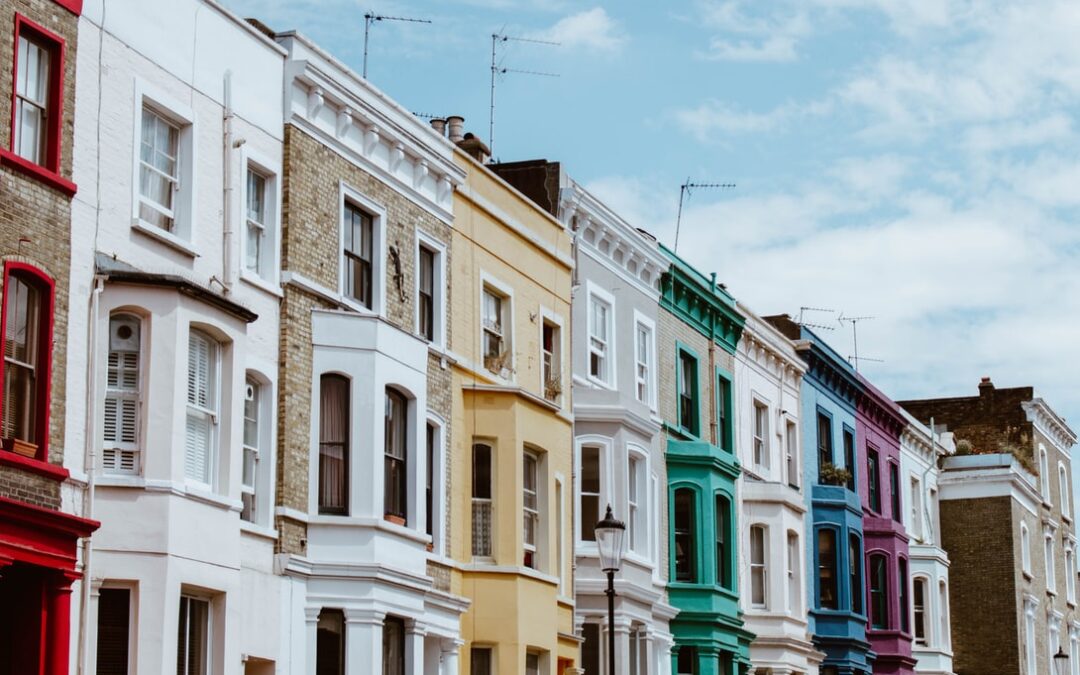If you’re a landlord, you’ll know that the pandemic has been a turbulent time for rent and property prices.
Since the Government hit the brakes on the housing market in March 2020, we’ve recently seen the highest monthly average price on record, while renting a home has become cheaper than buying one for the first time in six years.
In this blog post, we’ll look at the latest rental and housing figures for London and the UK, so you can get an idea of where the trends may lead for the rest of 2021.
The London rental market
In the 2019/20 financial year, the mean rent price in England was £843 per month, compared to £728 in 2020/21, according to the Office for National Statistics – a fall of almost 15%.
London, on the other hand, saw a 1.3% drop in prices from the start of the pandemic to April 2021, decreasing from £1,644 to £1,623.
That’s a decrease of only £21, but for context, London rent prices have fallen to levels last seen in 2014, according to Zoopla.
Needless to say, however, London is large, and prices are different throughout the city.
For instance, rent prices decreased by 3.3% from £1,997 to £1,932 in the central hub of the capital. On the other hand, rents in the outer parts of the city actually increased by 0.7% to stand at £1,382.
In inner London, Camden rental prices nosedived by 42%, however, while prices in the City of London fell by 28%..
Westminster suffered too, with prices falling from £3,046 to £2,605, while prices in Kensington and Chelsea dropped from £3,023 to £2,849.
In fact, almost every part of inner London saw a decrease in rental prices, the only silver lining being Southwark. Prices there increased by just 0.4%.
Outer London, meanwhile, was split almost evenly between rises and falls in prices. And even when prices did drop, they weren’t as drastic as in inner London. Barking and Dagenham, for instance, saw the biggest drop (7%), with prices falling from £1208 to £1126 between 2019/20 and 2020/21.
Properties in Richmond upon Thames remain the most profitable to let in outer London. While prices hardly changed, the average rent price stands at £1,837 – higher than rents in Islington and Lambeth.
Percentage increases remain relatively low in areas of growth, however, with Bexley’s 7% increase being the highest in outer London.
The UK property market
From the onset of the pandemic, the average house price was £231,855 following a year of slow growth, according to the Land Registry. As of July 2021, the latest dataset for monthly house prices, the average house was worth £255,535 – that’s a 9.7% increase.
July wasn’t a one off; house prices rose every month in 2020 and the record average house price has been broken twice in 2021. June 2021 saw the highest house prices in the UK of £265,668.
Why have prices remained so strong?
The stamp duty land tax (SDLT) holiday is often quoted as the main contributor to the steep rise in house prices, as it helped stimulate demand.
Introduced on 8 July 2020, the Government cancelled SDLT on purchases of property worth £500,000 or less to persuade potential homebuyers to complete their transactions, saving them some £3.4 billion.
The Government reduced the holiday to homebuyers with transactions worth at least £250,000 on 30 June 2021, and brought the scheme to a close at the end of September 2021.
Not everyone agrees with this assessment, however. For instance, the Resolution Foundation, the left-leaning think tank, suggested we would have expected higher growth in areas where savings from the policy were most significant.
Instead, prices increased by 13% in the fifth of local authorities where SDLT savings were “negligible or non-existent” compared to 7% in the fifth of local authorities where the highest savings were achieved.
The rental and property market going forward
Even if we assume the SDLT was influential in the increase in house prices, the lack of supply of properties will probably keep prices high.
Speaking to Which? earlier this year, Mark Hayward of the estate agency group Propertymark said:
“The market is experiencing a growing imbalance of supply and demand, and we see no indication that supply levels will increase.
“We firmly remain in a strong seller’s market which will impact house prices as buyers bid to secure their dream home.”
Rob Wishart, head of business intelligence at HomeLet & Let Alliance predicts that the rental market will strengthen too, especially in London when travel restrictions are eased and demand increases among international travellers and residents.
Talk to us about your property portfolio.

